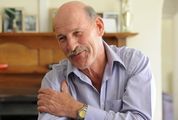Private healthcare sector capable of serving twice as many patients
by Tamar Kahn,
2015-07-27 14:16:32.0
THE private healthcare sector could serve twice as many patients as it currently does if it provided better primary care services and admitted fewer patients to hospital, PPO Serve CEO Brian Ruff on Monday told delegates to the annual Board of Healthcare Funders conference.
SA currently had approximately four private hospital beds per 1,000 insured lives, compared to developed countries which had closer to two private hospital beds per 1,000 insured lives, he said.
Primary care covers the spectrum of services offered by general practitioners and some specialists, and is provided out of hospital. Unlike many developed countries, in SA patients can go directly to specialists and patients with multiple conditions are often treated by different doctors who have no contact with each other, a situation that has led to steadily increasing hospital utilisation, said Dr Ruff.
"Combine over-utilisation and high prices, and every year we go to the market with higher premiums, which means young and healthy members stay out. There is a fair amount of evidence that we are in an actuarial death spiral," he said.
Dr Ruff, who until earlier this year was head of risk intelligence at SA’s biggest medical scheme administrator Discovery Health, argued that investments in community level services would reduce hospital admissions, save money, and enable schemes to lower premiums and attract more members.
The size of the medical scheme market has remained more or less stagnant for the past decade, and stood at 8.7-million lives in 2013, according to the Council for Medical Schemes.
Dr Ruff said industry data showed that six out of every 10 people who died spent their final days in hospital. "How many times have we heard people say they would like to die at home? Because of the lack of home services, and the incentives to keep people in hospital, that just doesn’t happen," he said.
He advocated a community-based healthcare model, in which healthcare providers worked as a team and shared information about their patients.
"Schemes disregard their system management role. They spend all their time on tariffs but don’t deal with over-utilisation," he said.
He also advocated state subsidies for low income families so they could afford medical scheme cover.

Dr Brian Ruff addresses the BHF Southern African Conference on healthcare accountability on Monday. Picture: TREVOR SAMSON
THE private healthcare sector could serve twice as many patients as it currently does if it provided better primary care services and admitted fewer patients to hospital, PPO Serve CEO Brian Ruff on Monday told delegates to the annual Board of Healthcare Funders conference.
SA currently had approximately four private hospital beds per 1,000 insured lives, compared to developed countries which had closer to two private hospital beds per 1,000 insured lives, he said.
Primary care covers the spectrum of services offered by general practitioners and some specialists, and is provided out of hospital. Unlike many developed countries, in SA patients can go directly to specialists and patients with multiple conditions are often treated by different doctors who have no contact with each other, a situation that has led to steadily increasing hospital utilisation, said Dr Ruff.
"Combine over-utilisation and high prices, and every year we go to the market with higher premiums, which means young and healthy members stay out. There is a fair amount of evidence that we are in an actuarial death spiral," he said.
Dr Ruff, who until earlier this year was head of risk intelligence at SA’s biggest medical scheme administrator Discovery Health, argued that investments in community level services would reduce hospital admissions, save money, and enable schemes to lower premiums and attract more members.
The size of the medical scheme market has remained more or less stagnant for the past decade, and stood at 8.7-million lives in 2013, according to the Council for Medical Schemes.
Dr Ruff said industry data showed that six out of every 10 people who died spent their final days in hospital. "How many times have we heard people say they would like to die at home? Because of the lack of home services, and the incentives to keep people in hospital, that just doesn’t happen," he said.
He advocated a community-based healthcare model, in which healthcare providers worked as a team and shared information about their patients.
"Schemes disregard their system management role. They spend all their time on tariffs but don’t deal with over-utilisation," he said.
He also advocated state subsidies for low income families so they could afford medical scheme cover.





















Post a comment